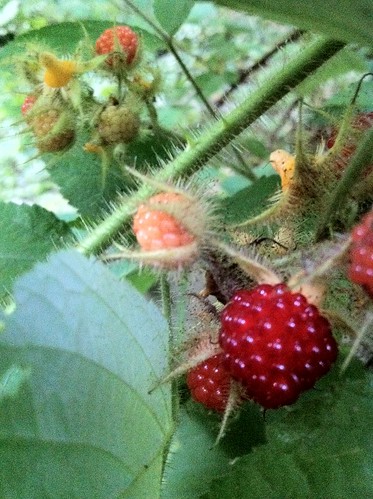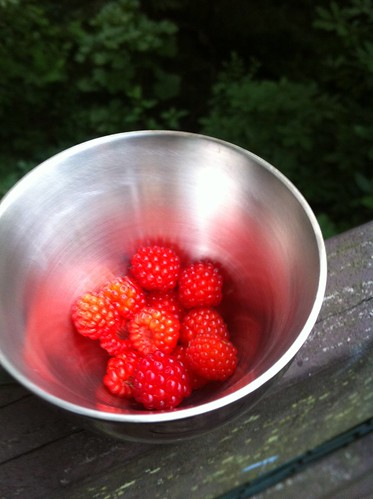Edible Plants – Eat Your Yard! Wild Wineberries
As I’ve stated before my husband and I are busy people with working and unschooling our girls we are somewhat lazy gardeners. Luckily we have a wonderful plot of land and it’s covered with various edible plants. I’ve talked before about edible plants and my love of garlic mustard but that season has passed and we’re now picking fresh tasty wild wineberries (aka wild raspberries) that are growing in our yard.
These delicious berries are a little tarter than traditional raspberries but they are just great for snacking and the super prickly stems deter the birds and other creatures from grabbing the fruit before we can. The first few years we lived here I didn’t do anything to control theses wild edible plants but last year I “encouraged” them, as much as I could, to stay in one area of the yard. That area, which used to be a flowerbed eons ago, is now full of wild wineberry plants and we have quite a crop that’s getting ready to ripen. We also have a wooded hill that is edges with wineberry plants and we are just now realizing that we may have some black raspberry plants along the hill too! Looks like we have some delicious invasive wild edible plants in our kitchen in the future.







im trying to determine if wineberries are wild RED rasberries- rubeus ideus? Does anyone know? Wild red rasberry leaf is an excellent tea for the entire pregnancy.One teaspoon of leaf to one cup of water. Let stepp,COVERED for 10 minutes. One can consume up to one quart per day and it is cleansing and nourishing for mother and child.
It’s my understanding that they are Rubus Phoenicolasius. They are a type of Rasberry but it doesn’t look like the type that you are looking for. These are tarter than regular rasberries.